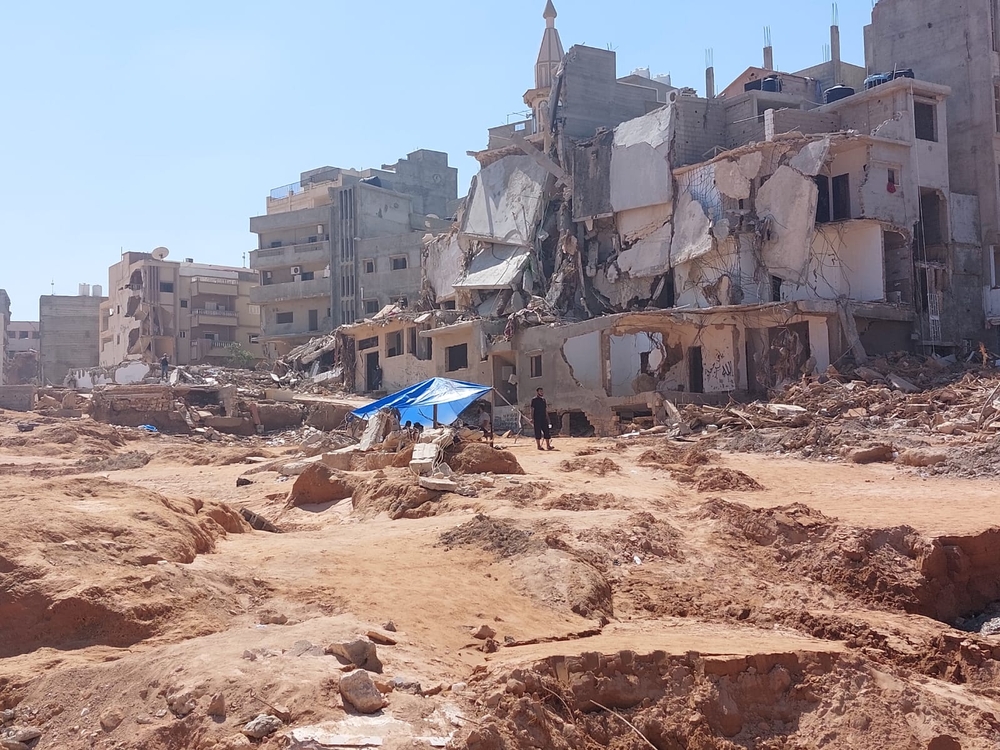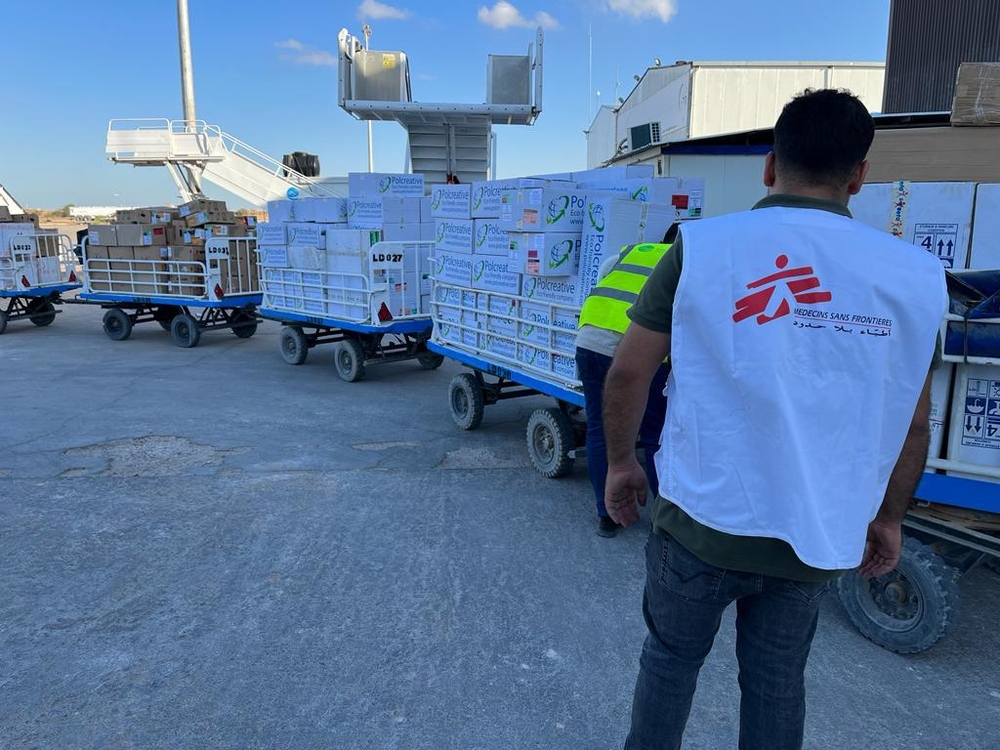Libya Floods: MSF teams describe the situation and medical needs in Derna


Manoelle Carton, MSF Medical Coordinator for Libya, describes the situation and MSF's ongoing assessment in Derna:
"We arrived in Derna as MSF assessment medical team, we are medical and logistic, we are four. We arrive in Derna yesterday morning. The situation is still quite chaotic, with a lot of people everywhere. A lot of volunteers coming from everywhere in Libya, coming from out of state. Everybody wants to help. Even this help is too much as it is becoming chaotic. There is a big, big need of coordination, the emergency committee here is trying to organize this day by day as well as the Ministry of Health. We as MSF started our assessment yesterday, but it was difficult because it was so chaotic that even to go into the streets in the city you have to wait for hours in a cue of cars etc. In addition to that, we had a meeting this morning with the ministry of health, with whom we discussed where could MSF bring its support, where are the needs, there are already a lot, a lot, of donations from Tripoli, all around Libya, other states in NFI [nonfood items], drugs, medical equipment, but this is not the first needs today—for this first phase.
So, the really acute phase of the emergency is clearly now over. There are no dead bodies in the street anymore, no wounded that we can see in the hospital. It’s more the day-to-day health needs that are coming up again—chronic disease. We can clearly identify a huge need in mental health support. Everybody is asking for it, from people in the streets, to the medical doctor that assisted the people, from the people who saw the events, to the people who lost their entire families. It’s really one of the big huge needs. This morning we met with the Ministry of Health to discuss a bit how MSF could support, and we started an assessment of the primary health centers in the city. We visited three in the west part—one is not active because almost all of the medical staff died, and also the director, and there was nobody to reactivate it from now. The two others are active with volunteer doctors from Tripoli, but they are asking for support, for help, and mainly for mental health to support the population coming to the center. We still are not really clear of the situation of the IDPs [internally displaced people], we still need to understand. Clearly in the west part of the area where we are, we identified some space with some 3000 IDPs [internally displaced people], but there are more in houses of friends, colleagues. But then it becomes crowded and it will not be manageable in the long term.
We will continue the assessment today. We will go to the east part to assess the two health centers there. And we will try and understand a bit the situation of the water in the city—evacuation water, drinkable water, and we clearly need a deeper assessment of water and sanitation. Because with this type of event we can really worry about water related disease. And that we still need to assess and it’s also a request of the ministry of health. And then we will try to go on to this assessment and start to send people as soon as possible on the ground to start activities."





Leave a Comment